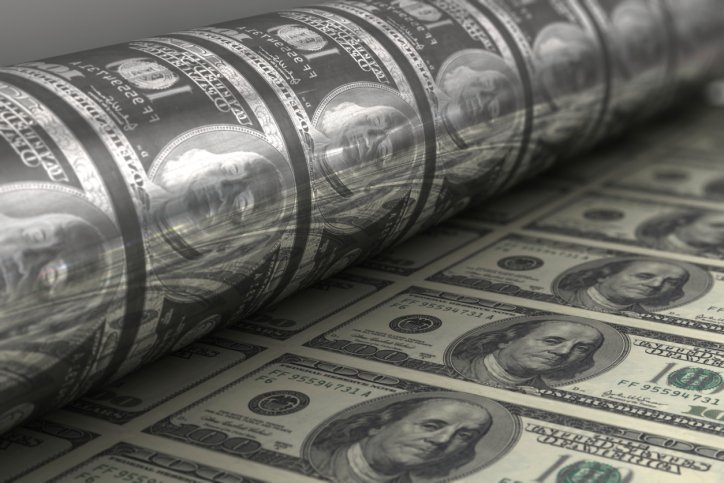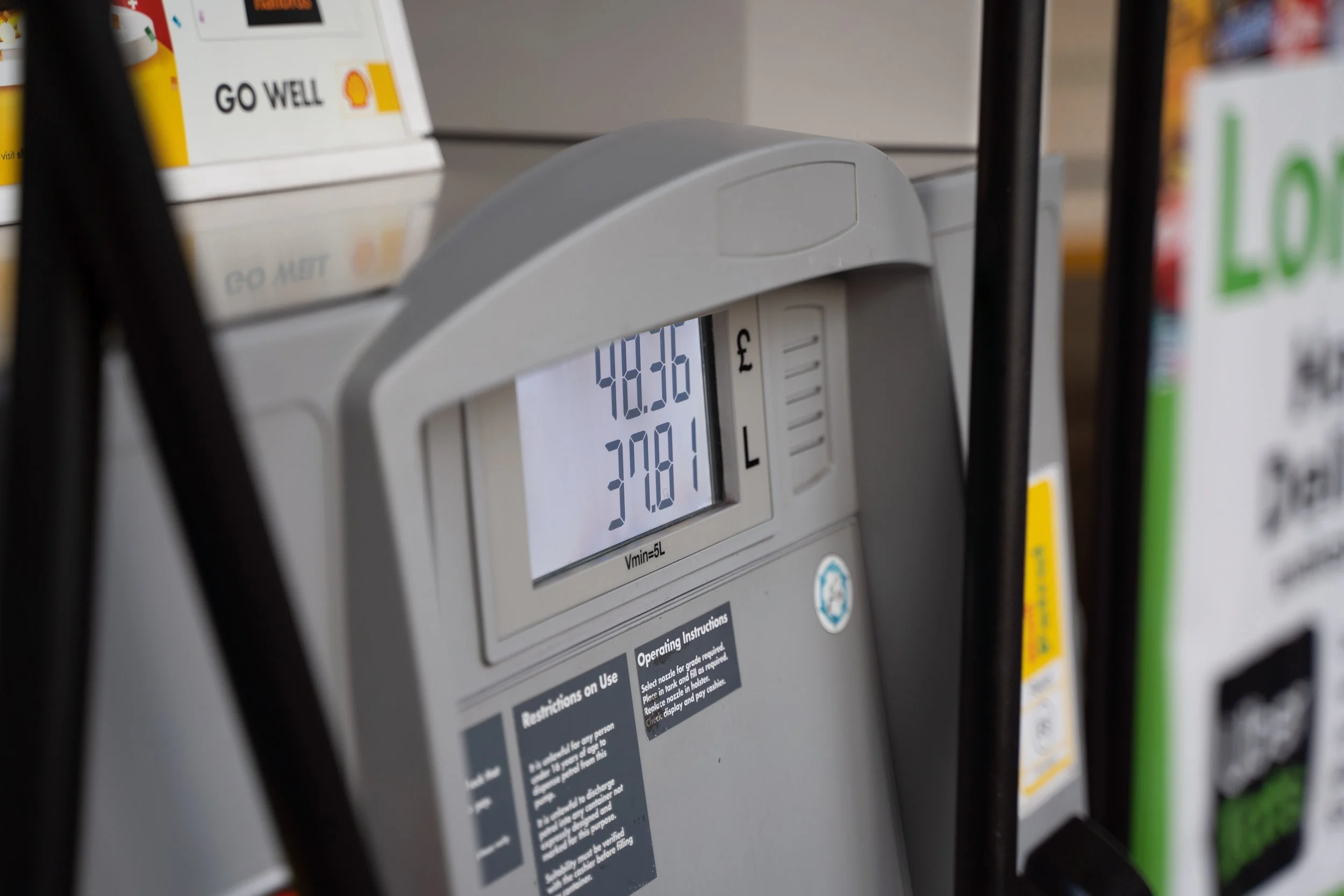Will Cryptocurrency recover from the current market dump?
Inflation, the Ukraine-Russia War, Covid-19, global supply shock - will crypto emerge from the turmoil of the current market and back to all-time highs?
If one thing is clear my friends, we are in dire straits.
Economic punishment for those unwise will be inevitable. Adapt, and you will succeed. Do not, and you will blunder.
Firstly:
The State of the Current Economic Atmosphere
A dark cloud of recession is looming…. so what is that?
Typically recognised as two consecutive quarters (3 months) of economic decline, the National Bureau of Economic Research (NBER) has actually redefined a recession as a significant decline in economic activity across the entire economy, lasting at least a few months.
The economy has been looking pretty dire Riley, are we in a recession?
No. We are not legally in a recession, but considering the astronomically increasing inflation, the impact of the Ukraine-Russia War, proceeding effects of Covid-19 and supply shocks - we are more than likely heading for one. Oh dear!
More on these points later though.
*Remember: The National Bureau of Economic Research will make an official declaration when we are in a recession. So check there or check the news or something.
How are people feeling about current economic circumstances?
Recorded in June, US Index of Consumer Sentiment (feelings) is at its lowest ever since the index's inception in 1952, a level of 50 points. Basically, people are freaking out and fear is dominant. This is especially due to inflation as mentioned previously and the according interest rate hikes to combat it. A recent 75 basis-point rate hike was the first since 1994 and the US will likely see another in the next month or so.
Additionally, the Surveys of Consumers received results that "79% [of US consumers] expect bad times ahead for business conditions," (Hsu J, 2022). This percentage has not been this high since the 2008 financial crisis.
*I will note before continuing: I am focusing on the US in this post as they have the most relevancy in the scheme of the stock market’s performance and plays another significant role in all current global affairs. They also have stronger sources.
What does this excessive fear mean?
It means people will stop spending, start saving and thus, consumption and demand for goods decreases. This, in-turn, lowers GDP (Global Domestic Product), a already-existing short-term trend that will intrinsically lead us further toward a recession. If you want to really quickly sus-out consumer sentiment like this, just visit Crypto Fear and Greed Index. People will sell and drive prices down when fearful, and will buy and drive prices up when greedy.
First point of the matter:
Inflation
What is it?
If you didn't know, inflation is the general price increase of goods and services by households year-over-year.
The last determined inflation rate in the U.S was June's 9.1% increase from June, 2021 and the highest since 8.9% in 1981. In fact, experts forecasted the Consumer Price Index (CPI) to record 8.8% for June, right after mistakenly projecting 8.3% in May before a cheeky surprise of 8.6%.
What’s causing it?
Arguably the most paramount reason inflation is accelerating faster than it has since the 2008 financial crisis is the U.S' $13 trillion money-printing scheme - $5.2 trillion for COVID (relief payments, etc) + $4.5 for quantitative easing (reducing interest rates) + $3 for infrastructure (building things).
Especially in conjunction with Covid-19, money-printing proved significant as it attempted to soften the increased unemployment levels and drive consumer spending. This was especially prominent in the US where the Federal Reserve wanted to temporarily increase the spending power of the average person before inflation began to climb.
Similarly, low interest rates on borrowing must be factored. Having been very low for years up until Covid-19, these low rates drove substantial loans to be taken out by average consumers. As a result, debt increased and thus, inflation gradually began to climb.
Additionally, economic sanctions (restrictions) involved in the Ukraine-Russia War have skyrocketed energy and fuel prices (if you own a vehicle, you know what I mean). More on that later though.
So what's the point of all this?
Cryptocurrency (Yay! Back on topic!), is almost pegged to the performance of the stock market, albeit, it's a million times more volatile. Ultimately, if you are invested in cryptocurrency like me, regardless of what the currency is, this potential recession will have an absolutely dire effect on your portfolio until it's over in like 1-3 years. However, this begs a cheeky question...
If cryptocurrency really did become the primary store of value for the future economy, or provided other benefits (reducing fraudulent activity and decentralising authority over your money), would a recession be a great opportunity to invest?
Yes.
The Ukraine-Russia War and its Impact on the Future of Cryptocurrency
From the beginning of the Ukraine-Russia war to the present, Ukraine has received over $60 million in cryptocurrency from all over the world.
Additionally, a Ukrainian man was actually able to use cryptocurrency to avoid visiting the bank with queues of hundreds, by transferring his Bitcoin stash to his local currency and paying to leave Ukraine on the first day of war.
The pinnacle of the Ukraine-Russia War’s influence on the future of cryptocurrency is in the economic sanctions against Russia.
Sanctions, like embargoes and boycotts depending on the context of the restriction, are restrictions taken against a state or nation for disobeying rule or agreement. Russian President, Vladimir Putin's decision to invade Ukraine proved sufficiently frowned upon. Thus, sanctions like these have been put to action:
US withholding $600 million in Russian reserves so it can't pay back debt.
US is not accepting any Russian oil or gas exports. The UK plans to do the same.
A ban on all Russian flights from US, UK, EU and Canadian flight routes.
McDonalds, Coca-Cola and Starbucks suspended all business in Russia.
$630 billion in foreign currency reserved in Russia have now been frozen (icy baby).
Russia removed from SWIFT (Society for Worldwide Interbank Financial Telecommunication).
60% of the nations $640 billion in foreign currency reserves cannot be accessed by the Russia Central Bank as the funds have been frozen.
However, the most radical manoeuvre taken to boycott Russia in its decision to invade Ukraine, is the removal of several Russian banks from one particular organisation, SWIFT.
SWIFT (Society for Worldwide Interbank Financial Telecommunication) is among the largest transaction mediums in the world, used globally by over 11,000 bank institutions to securely execute financial transactions. Thus, this initiative on top of Visa and Mastercard's decision to halt transactions from Russia, encapsulate both the benefits and dangers of centralised financial mediums.
Benefit: Regular people can determine where their money is and where it goes without central bank oversight.
Danger: Russian oligarchs (elite) may use cryptocurrency to evade sanctions - this may risk central cryptocurrency exchanges requiring to take measures to prevent those holders from withdrawing funds. This objects a major principle of crypto - decentralisation.
The Global Supply Shock
The global supply chain collapse is ultimately significant as supply routes crisscross all over the world. Some impacts include:
Disrupted trade routes
Declines in raw material availability
Increased oil and energy costs
Fluctuating or rising freight costs
Consumer-spending knock-on effects as energy and goods prices rise
Sanctions on Russia have led to docking ports being closed and even missile attacks on Russian cargo ships.
For the same reason, many large shipping lines have suspended all activity in Russia. This means ships carrying goods and resources need to take longer routes and when paired with Covid-19-related shutdowns of shipping facilities in Asia, the world is experiencing snails-pace import times and transit times.
The Ukraine-Russia War is also having quite a detrimental impact on food exports. Both sanctions and the ravaging of Ukrainian farmland has led to this. Globally, Ukraine accounts for roughly 41% of the sunflower oil, 8.9% of wheat, and 16% of corn exports. Russia has a 21% share of sunflower oil exports and 14% wheat.
Ultimately 560,000 U.S businesses rely on Russian and Ukrainian suppliers. In Australia, however, we don’t do much trade with Russia. We’re probably chill there.
Due to these factors, product surcharges and shipping fees, final costs are significantly increasing for receiving customers when purchasing recreational, automotive, electrical products and raw materials.
Final Thoughts
Inflation is driving people to spend less and save more - although that does not mean invest. The more fearful the public, the further the stock market declines and thus, crypto even more-so.
The Ukraine-Russia War provides reasons for and against the standardised use of cryptocurrencies. It puts the power of money in the hands and control of the people, but also has the potential to hack sanctions and find loopholes in the current financial system.
Supply chain concerns are both annihilating businesses and further promoting radical consumer saving - thus, unless crypto becomes a less volatile store of value, less people will be investing in such a risky asset.
Could Crypto Replace Fiat?
Fiat (cash and debit/credit) currency has been tried and tested for over a millennium as a reliable means of exchange. It is currently regulated and thus, many are not open to an alternative due to it being so established and trustworthy.
Traditional fiat financial systems can manipulate inflation with changing interest rates and open market operations. This creates corruption as it puts a large amount of monetary control in the hands of the government. Cryptocurrency removes these tools.
The financial support to Ukraine ($60 million) in cryptocurrency thoroughly supports the effectiveness of crypto to send funds reliably and globally, whilst avoiding interruption by government entities or legal restrictions.
Cryptocurrency use cases, popularity, understanding and acceptance will “continue to grow,” (Chainalysis, 2021 Global Crypto Adoption Index).
The role that cryptocurrency could play in this current financial system is still being explored and thus, a conclusive answer cannot be deduced.
Thanks for reading guys!
Do you still have faith in cryptocurrency to any extent? 😃
Useful Links
The Basics of Bitcoins and Blockchains
The Bitcoin Standard: The Decentralised Alternative to Central Banking
References
-Reiff, Nathan, and Somer Anderson. “Will Cryptocurrency Replace Fiat Currency?” Investopedia, 29 April 2022, https://www.investopedia.com/tech/bitcoin-or-altcoin-can-one-them-replace-fiat/. Accessed 16 July 2022.
-“The 2021 Global Crypto Adoption Index: Worldwide Adoption Jumps Over 880% With P2P Platforms Driving Cryptocurrency Usage in Emerging Markets - Chainalysis.” Chainalysis Blog, 14 October 2021, https://blog.chainalysis.com/reports/2021-global-crypto-adoption-index/. Accessed 16 July 2022.
-Eichler, Ryan. “Recession Definition.” Investopedia, https://www.investopedia.com/terms/r/recession.asp. Accessed 16 July 2022.
-National Bureau of Economic Research | NBER, https://www.nber.org/. Accessed 16 July 2022.
-Schwahn, Lauren, and Arielle O'Shea. “Are We in a Recession, or Headed for One Soon?” NerdWallet, https://www.nerdwallet.com/article/finance/are-we-in-a-recession. Accessed 16 July 2022.
-“Crypto Fear & Greed Index - Bitcoin Sentiment.” Alternative.me, https://alternative.me/crypto/fear-and-greed-index/. Accessed 16 July 2022.
-“What are the sanctions on Russia and are they hurting its economy?” BBC, 27 June 2022, https://www.bbc.com/news/world-europe-60125659. Accessed 16 July 2022.
-Sigalos, MacKenzie. “Ukrainian refugee flees to Poland with $2,000 in bitcoin on USB drive.” CNBC, 23 March 2022, https://www.cnbc.com/2022/03/23/ukrainian-flees-to-poland-with-2000-in-bitcoin-on-usb-drive.html. Accessed 16 July 2022.
-Whiting, Geoff. “How Russian Sanctions May Impact Global Supply Chains.” Red Stag Fulfillment, 13 April 2022, https://redstagfulfillment.com/global-supply-chains-and-russian-sanctions/. Accessed 16 July 2022.
Love, Riley C.









